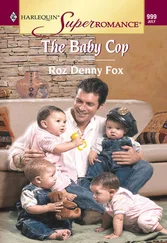Cullen knew he’d been put in his place. “Normally I don’t work with a partner. Tracking lost or stolen art is usually a solitary pursuit. So forgive me if I’m unfamiliar with partnership protocol. I felt…hoped things would go more smoothly if we got along.”
Ah, they were finally getting somewhere. Mei set her plate back on the tray and poured herself more tea. She leaned back, studying him over the rim of the cup. “That’s where we differ, Mr. Archer. I always work with a team initially. But once all the team members understand the scope of the situation we’re investigating, we go our separate ways, touching base once a week to update the others on our progress.”
“I think we should start by using first names. Call me Cullen. Do you prefer Mei or Mei Lu?”
She waffled a bit, having had this same discussion with Captain Murdock yesterday. And the way her name sounded as it fell musically from this man’s lips took her mind off the matter at hand. “In any investigation undertaken by our department, staff would call me Lieutenant. Last night you didn’t tell me whether you have a rank at Interpol. If so, I think that would be the most professional approach. I admit I’m surprised to find an agent of theirs living in Houston.”
“I’m a civilian on a list of private insurance investigators that all insurance companies can access. They call someone on the list whenever an insured item is stolen or goes missing. If I’m tied up on another case or decline their offer, they go to the next name. As to living here—” he waved a hand airily “—that’s a result of my great-grandfather’s toil and a bit of luck. Matt Archer was a wildcatter who hit black gold. His wife, Sophia, sheltered their newly acquired fortune in land, cattle and fine art. His son, my grandfather, was something of an entrepreneur. My father, who was ambassador to Indonesia for many years, helped develop an art-exchange program. When Mom died, he married a woman from Djakarta. Never had a desire to come back here.” He paused.
Mei murmured for him to continue.
“I attended university in England. After graduation, you might say I fell into a job with a prominent gallery in Paris, as a broker of European art. I saw high-end paintings ship but fail to reach their destinations, and I wanted to know where such pieces went. It turns out I had a knack for getting them back. As a matter of course, I attracted the attention of our insurers, like Lloyd’s of London. I soon discovered they paid better for what I’d been doing for a pittance. At times my path crossed Interpol’s. Art recovery became an ongoing passion, one I was able to continue even after I moved home to manage my grandfather’s estate following his death. Now you have most of what’s in my dossier,” he said wryly.
Maybe most, but not all. Mei thought he’d neatly skirted the facts surrounding both his marriage and divorce. “You certainly have an interesting, eclectic background. You’re no doubt aware that the extent of my investigative experience is local, or in some cases tracking leads into bordering states. I look forward to learning how you hunt criminals and question potential witnesses in other countries.”
Cullen glanced over her head and made no comment, but waited for Freda to enter and collect the tray from his desk.
“Sorry to interrupt,” she said. “I wanted to give you a heads-up about the children beginning to stir. It seems that no matter how hard I try to keep them from invading your office when you’re working, they manage to finagle their way around me.”
“That’s fine, Freda. Belinda, especially, needs to start her day with hugs.”
The woman asked if either of them needed anything else; when both Cullen and Mei said they were fine, Freda cleared the desk and left in a rattle of dishes.
“Your children are lucky you’re so easygoing,” Mei Lu remarked in the ensuing silence.
“Yes. Well, kids lose enough stability when parents part ways.”
“From the little I saw of them, they seem remarkably happy and well-adjusted.”
Cullen shifted in his chair, acting almost flustered by the compliment. Mei wondered if fatherhood was an area the coolly competent Mr. Archer had reservations about. If so, she’d find that hard to believe.
Cullen rearranged his features quickly. “Two of the homicide detectives last night were also present when the first courier was found. To date they’ve turned up no leads. Both men said trying to get information out of witnesses near the nightclub parking lot was like hitting a brick wall. Witnesses either don’t speak English or pretend they don’t. I hate to say this in front of another of Houston’s finest, but I felt solving these murders isn’t a high priority.”
Mei returned her teacup to its saucer. “Do you consider the officers derelict in duty, or have they truly exhausted every lead?”
“I wasn’t at the first site initially. I joined the case several days later. I can’t fault how the team swept the dock for clues last night. They were thorough. I saw one officer walk along the row of parked cars and take down the license numbers of two that still had warm engines. He planned to pay the owners visits this morning to see if they saw or heard anything significant.”
“It sounds to me as if they plan to work the case.”
Cullen let out a breath. “You’re right. I’m just a man who likes speedy results. It’s difficult to accept that if people saw a man killed before their eyes, they’d stonewall the cops.”
“Sometimes cops are the last ones witnesses want to speak with.”
“I know. But I’m sure you know that in the past our police department—or I should qualify and say some cops in the city have been as underhanded as the crooks.”
Mei stiffened automatically. It was an accusation of long standing, one she’d heard Catherine gripe about often enough. “On a force our size, there are bound to be a few bad apples.” Mei found herself quoting the chief. “Chief Tanner cleaned house after she came on board. She outright fired officers proven to be on the take. She reprimanded and demoted others.”
“Hey, I’m not accusing your chief. I occasionally run into the city manager at community events, and he says she’s tough. Yet murder is on the rise.”
“And Homicide is a division that’s spread thin. I have a good friend who works in the Chicano section. That’s another area of the city where witnesses clam up and suddenly become deaf and blind. I’ll be glad to ask Crista for some tips on how she interrogates. She has a high degree of success.”
Cullen opened his folder and turned to a new page in his notebook. “All right. That would be good. I’d like us to go around to the nightclub and talk to people who might’ve seen our first courier before he was killed. How many dialects are you conversant in?”
“I’m fluent in Mandarin and passable in Cantonese.”
“That’s great. I told you I spent some time trying to work a case in Guangdong province. I took a crash course in Cantonese. The taped kind, of course. I learned little and retained less. Luckily, I found that the Asians I came in contact with were very tolerant of my frequent goofs.”
Mei laughed. “Our language is one of the more difficult. So few foreigners make an effort, and they were probably pleased you did.” The knot in her stomach loosened a bit as they talked. She’d been so sure the first thing out of Cullen’s mouth would have to do with her father.
“They understood my pathetic attempts far more easily than I was able to decipher what they said. Maybe I have a bad ear, but many of the words sound alike to me.”
“It’s not you at all. Chinese is a tonal language. Words have different pitch patterns, but none of the emotional rise and fall you get in English or other European languages.” Changing the subject, she said, “I’ll be happy to go poke around the nightclub after it opens today. Just give me a list of people the homicide crew interviewed. If nothing else, the bartender may be able to provide some other leads. Is the bar open all day, or only nights? Where is it located?”
Читать дальше












